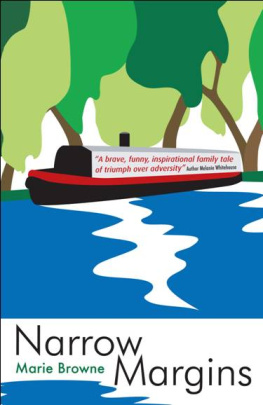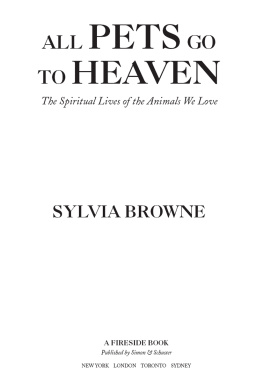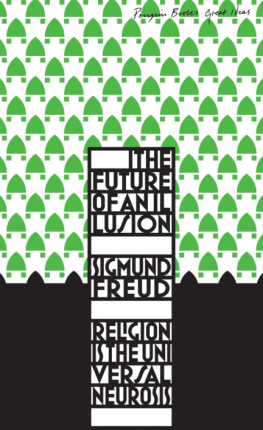Sir Thomas Browne
16051682
Sir Thomas Browne
Urne-Burial
PENGUIN BOOKS GREAT IDEAS
PENGUIN BOOKS
Published by the Penguin Group
Penguin Books Ltd, 80 Strand, London WC2R 0RL , England
Penguin Group (USA) Inc., 375 Hudson Street, New York, New York 10014, USA
Penguin Group (Canada), 10 Alcorn Avenue, Toronto, Ontario, Canada, M4V 3B2 (a division of Pearson Penguin Canada Inc.)
Penguin Ireland, 25 St Stephens Green, Dublin 2, Ireland (a division of Penguin Books Ltd)
Penguin Group (Australia), 250 Camberwell Road, Camberwell, Victoria 3124, Australia (a division of Pearson Australia Group Pty Ltd)
Penguin Books India Pvt Ltd, 11 Community Centre, Panchsheel Park, New Delhi 110 017, India
Penguin Group (NZ), cnr Airborne and Rosedale Roads, Albany, Auckland 1310, New Zealand (a division of Pearson New Zealand Ltd)
Penguin Books (South Africa) (Pty) Ltd, 24 Sturdee Avenue, Rosebank 2196, South Africa
Penguin Books Ltd, Registered Offices: 80 Strand, London WC2R 0RL , England
www.penguin.com
The Major Works first published in Penguin Classics 1977
These extracts first published in Penguin Books 2005
Taken from the Penguin Classics edition The Major Works, edited by C. A. Patrides
Except in the United States of America, this book is sold subject to the condition that it shall not, by way of trade or otherwise, be lent, re-sold, hired out, or otherwise circulated without the publishers prior consent in any form of binding or cover other than that in which it is published and without a similar condition including this condition being imposed on the subsequent purchaser
ISBN: 978-0-14-196426-3
A Note on the Text
The possibly reckless decision has been taken that, despite Brownes obscurities, this edition should maintain the Great Ideas pattern of minimal annotations. All Latin has been translated and some of Brownes own footnotes to Urne-Burial kept, but readers are otherwise on their own. Even in his lifetime Brownes allusions and vocabulary must have offered challenges, but then as now the rewards are very great.
Hydriotaphia: Urne-Burial or, A Brief Discourse of the Sepulchrall Urnes Lately Found in Norfolk
Chapter I
In the deep discovery of the Subterranean world, a shallow part would satisfie some enquirers; who, if two or three yards were open about the surface, would not care to rake the bowels of Potosi, and regions towards the Centre. Nature hath furnished one part of the Earth, and man another. The treasures of time lie high, in Urnes, Coynes, and Monuments, scarce below the roots of some vegetables. Time hath endlesse rarities, and shows of all varieties; which reveals old things in heaven, makes new discoveries in earth, and even earth it self a discovery. That great Antiquity America lay buried for thousands of years; and a large part of the earth is still in the Urne unto us.
Though if Adam were made out of an extract of the Earth, all parts might challenge a restitution, yet few have returned their bones farre lower than they might receive them; not affecting the graves of Giants, under hilly and heavy coverings, but content with lesse than their owne depth, have wished their bones might lie soft, and the earth be light upon them; Even such as hope to rise again, would not be content with centrall interrment, or so desperately to place their reliques as to lie beyond discovery, and in no way to be seen again; which happy contrivance hath made communication with our fore-fathers, and left unto our view some parts, which they never beheld themselves.
Though earth hath engrossed the name yet water hath proved the smartest grave; which in forty dayes swallowed almost mankinde, and the living creation; Fishes not wholly escaping, except the Salt Ocean were handsomely contempered by admixture of the fresh Element.
Many have taken voluminous pains to determine the state of the soul upon disunion; but men have been most phantasticall in the singular contrivances of their corporall dissolution; whilest the sobrest Nations have rested in two wayes, of simple inhumation and burning.
That carnall interment or burying, was of the elder date, the old examples of Abraham and the Patriarchs are sufficient to illustrate; And were without competition, if it could be made out, that Adam was buried near Damascus, or Mount Calvary, according to some Tradition. God himself, that buried but one, was pleased to make choice of this way, collectible from Scripture-expression, and the hot contest between Satan and the Arch-Angel, about discovering the body of Moses. But the practice of Burning was also of great Antiquity, and of no slender extent. For (not to derive the same from Hercules) noble descriptions there are hereof in the Grecian Funerals of Homer, In the formall Obsequies of Patroclus, and Achilles; and somewhat elder in the Theban warre, and solemn combustion of Meneceus, and Archemorus, contemporary unto Jair the Eighth Judge of Israel. Confirmable also among the Trojans, from the Funerall Pyre of Hector, burnt before the gates of Troy, And the burning of Penthisilea the Amazonean Queen: and long continuance of that practice, in the inward Countries of Asia; while as low as the Reign of Julian, we finde that the King of Chionia burnt the body of his Son, and interred the ashes in a silver Urne.
The same practice extended also farre West, and besides Herulians, Getes, and Thracians, was in use with most of the Celt, Sarmatians, Germans, Gauls, Danes, Swedes, Norwegians; not to omit some use thereof among Carthaginians and Americans: Of greater Antiquity among the Romans than most opinion, or Pliny seems to allow. For (beside the old Table Laws of burning or burying within the City, of making the Funerall fire with plained wood, or quenching the fire with wine) Manlius the Consul burnt the body of his Son: Numa by speciall clause of his Will, was not burnt but buried; And Remus was solemnly burned, according to the description of Ovid.
Cornelius Sylla was not the first whose body was burned in Rome, but of the Cornelian Family, which being indifferently, not frequently used before, from that time spread, and became the prevalent practice. Not totally pursued in the highest runne of Cremation; For when even Crows were funerally burnt, Poppa the Wife of Nero found a peculiar grave enterment. Now as all customes were founded upon some bottome of Reason, so there wanted not grounds for this; according to severall apprehensions of the most rationall dissolution. Some being of the opinion of Thales, that water was the originall of all things, thought it most equall to submit unto the principle of putrefaction, and conclude in a moist relentment. Others conceived it most natural to end in fire, as due unto the master principle in the composition, according to the doctrine of Heraclitus. And therefore heaped up large piles, more actively to waft them toward that Element, whereby they also declined a visible degeneration into worms, and left a lasting parcell of their composition.
Some apprehended a purifying virtue in fire, refining the grosser commixture, and firing out the thereall particles so deeply immersed in it. And such as by tradition or rationall conjecture held any hint of the finall pyre of all things; or that this Element at last must be too hard for all the rest; might conceive most naturally of the fiery dissolution. Others pretending no natural grounds, politickly declined the malice of enemies upon their buried bodies. Which consideration led












